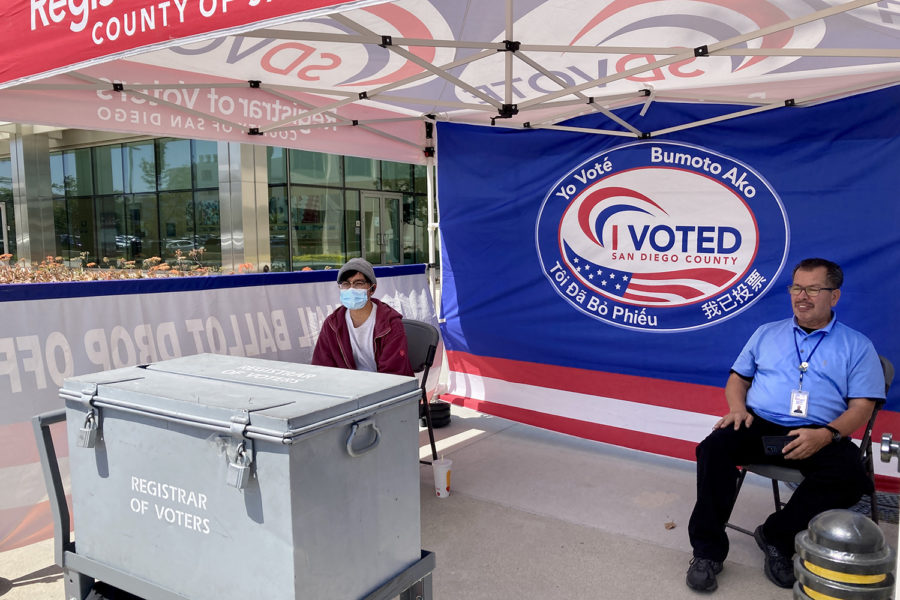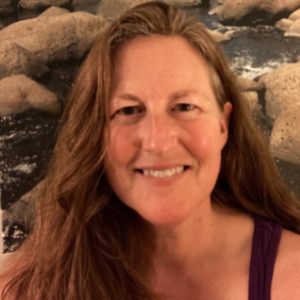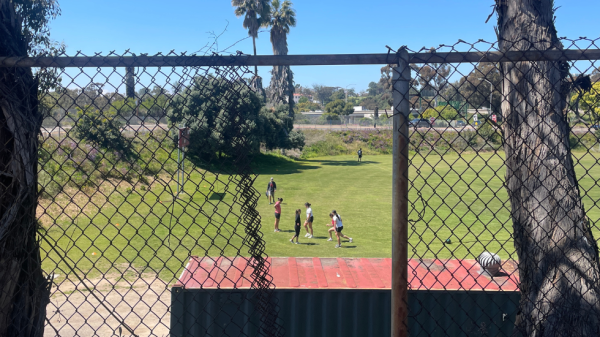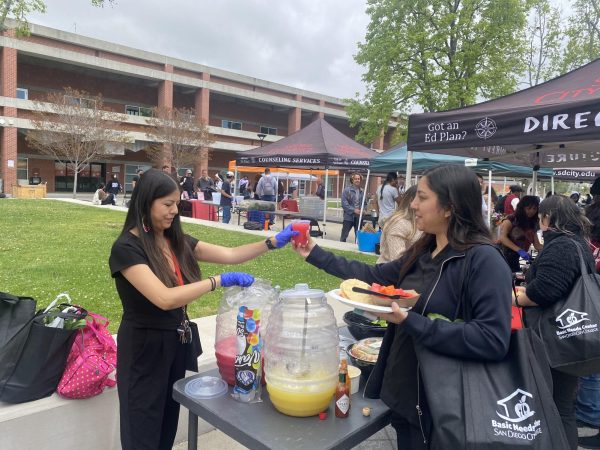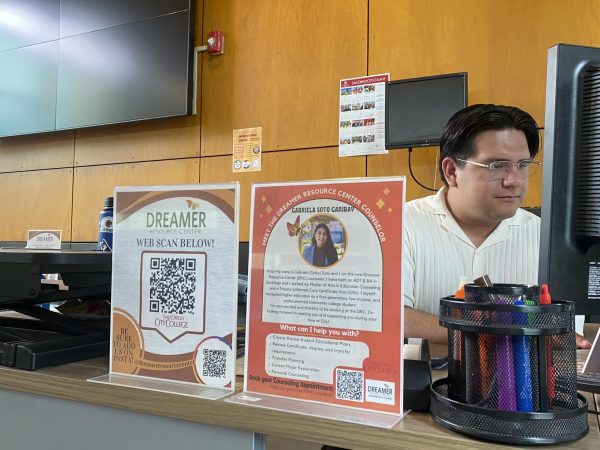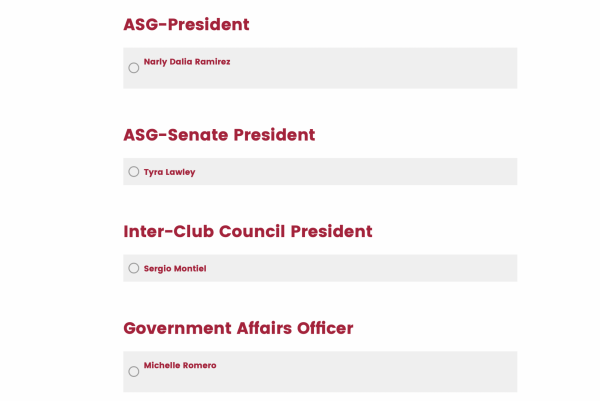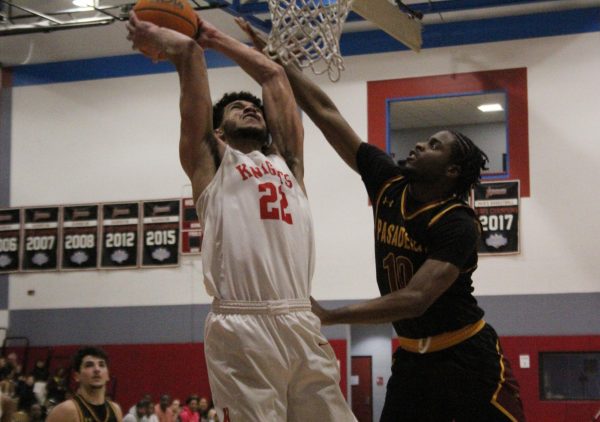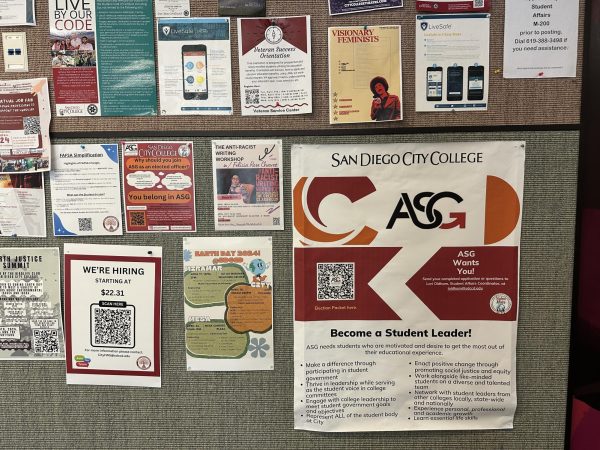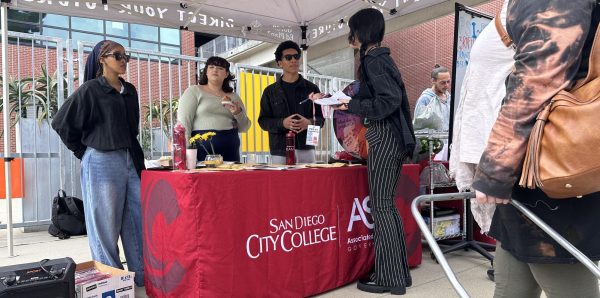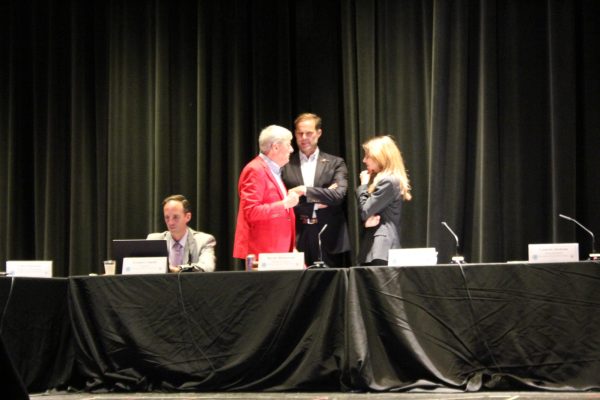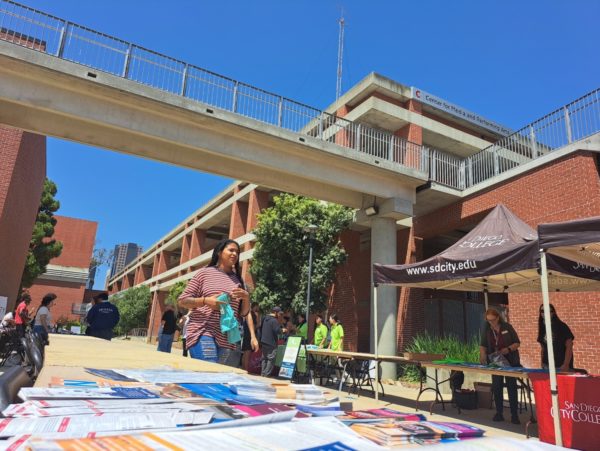Election Day comes to the South Bay
The special election to fill Lorena Gonzalez’s seat in AD 80, home to thousands of City students, wraps up today
Election workers Ian (left) and Richard, who declined to provide their last names, await voters wishing to drop off their mail ballots at the San Diego County Registrar of Voters on April 4. The AD 80 special election is the first in San Diego held under the new Voter’s Choice Act, which expands in-person early voting, provides mail ballots to all voters, and allows voters to return ballots at any vote center or drop off location throughout the county. Photo by Kathy Archibald/City Times Media
April 5, 2022
Today is the last day to vote in the California Assembly District 80 special primary election. The South Bay’s 80th District, which includes much of National City and Chula Vista, is home to thousands of City students.
Polls close tonight at 8 p.m.
The San Diego Community College District profile data shows more than 2,000 City students have San Diego zip codes within AD 80.
California assembly districts only comprise approximately half a million people each, even fewer of voting age, and far fewer than federal and statewide offices like governor, senators or members of Congress.
Given the typically low turnout of special elections and the local nature of the seat, City students in the South Bay could potentially have a significant impact on the results.
As of midday April 4, over 31,000 mail ballots had been returned, according to Antonia Hutzell, media coordinator for the San Diego County Registrar of Voters.
Three candidates are vying to fill the California law-making seat Lorena Gonzalez left vacant when she resigned to lead the California Labor Federation.
The race is essentially between two prominent local Democrats – Georgette Gomez and David Alvarez. The less familiar Republican, Lincoln Pickard, has reported no campaign donations, offers only a bare-bones website, and ran unsuccessfully in the previous three elections.
Gomez describes herself as a community organizer and the first LGBTQ Latina City Council President on her website. She is supported by a variety of labor groups and fellow Democrats such as Nora Vargas and Gonzalez, who endorsed her for the seat she left behind.
Alvarez, also a former City Council member, is a small business owner, according to his website, and has received donations largely from business groups.
If any candidate receives a majority (50% plus one) of the vote, they will serve the remaining months of Gonzalez’s term, according to Hutzell.
Otherwise, the top two candidates will go head to head in the Special General Election on June 7 for the current AD 80 district, Hutzell said.
The Gubernatorial Primary Election, which will be held on that same date, will be the first election to use the new district boundaries drawn in 2021, according to Hutzell.
The June 7 primary and Nov. 8 general elections will provide a chance for all California voters to select numerous state and local offices for midterm elections, including the next two-year term for AD 80, with these same three candidates plus one other Republican in the running.
Although midterm elections typically draw less interest than presidential elections, students across the US blew past previous midterm voting numbers in 2018, according to a Tufts University Institute for Democracy and Higher Education report, which tracked student voting trends.
“In the 2018 midterm elections, the average student voting rate at U.S. colleges and universities more than doubled from the last midterm elections, jumping from 19% in 2014 to 40% in 2018,” the report stated.
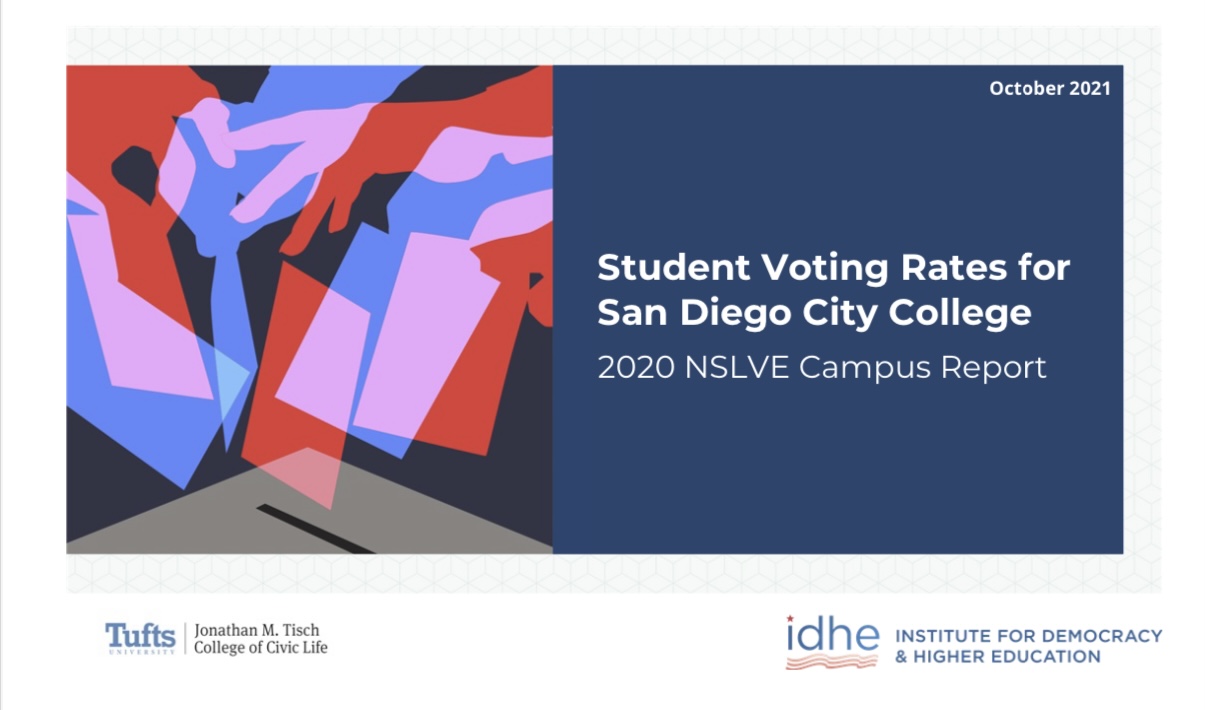
Students smashed records again in the 2020 presidential election, including here at City College, according to a Tufts IDHE report specific to City College provided to City Times Media by Susan Murray, dean of Institutional Effectiveness at City.
“Based on the 2020 presidential election turnout,” Murray wrote, ”City College also received national recognition – the Bronze Seal for attaining 50% – 59% voter participation.”
City students voted at a rate of 57.4%, which was 12% higher than City’s 2016 rate of 45.4%, according to the report, “just ahead of the national average for public two-year colleges (56%),” Murray wrote.
It remains to be seen if these trends continue.
The election today will be the first in San Diego under California’s new Voter’s Choice Act, which requires mail ballots to be sent to “every active registered voter,” according to the registrar’s website.
Ballots can be returned by mail, or at any dropbox or vote center. For a list of locations, or for more information click here.
To track your ballot click here.


